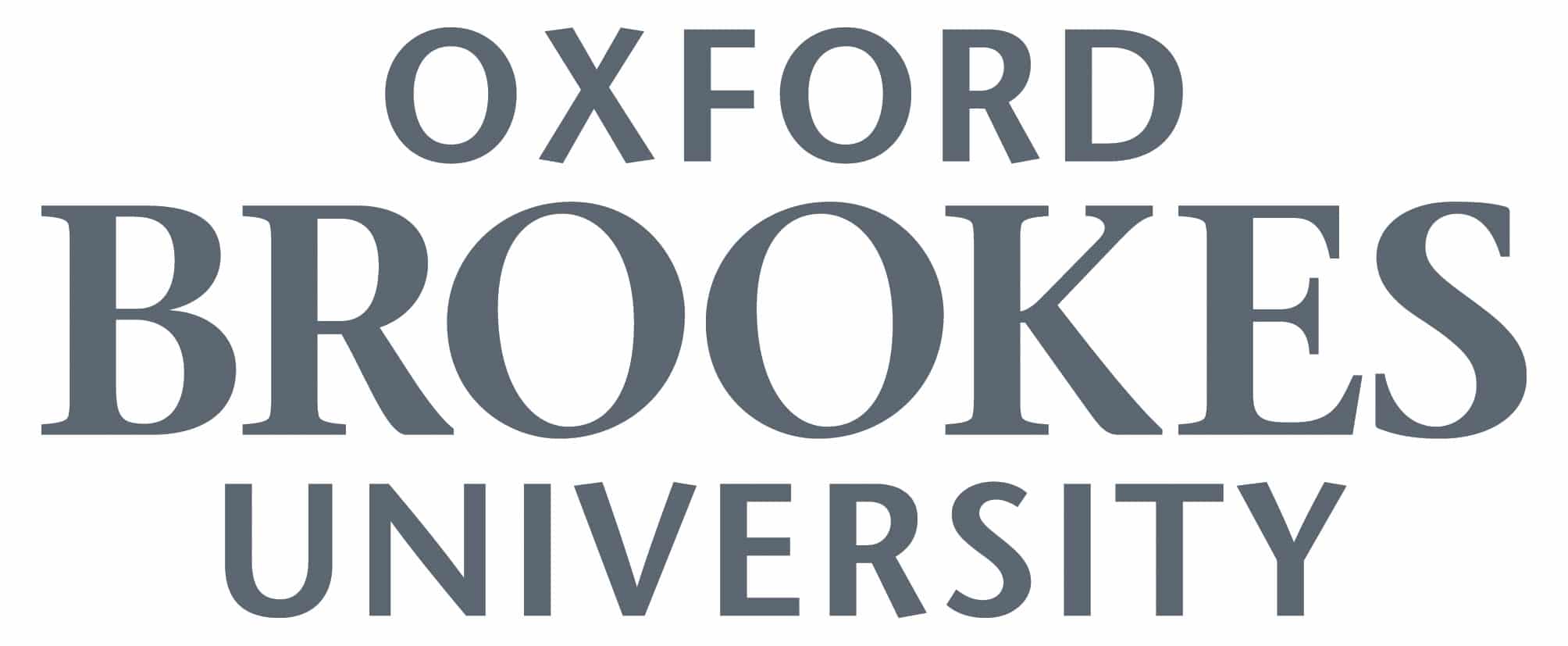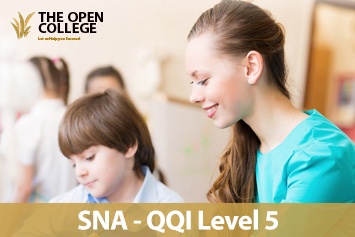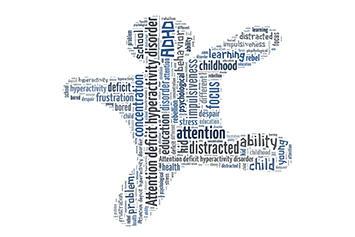BA (Ord) Early Learning & Care – Online Degree
- Our new online BA Degree in Early Learning & Care programme aims to facilitate knowledge of professional early learning & care practice with consideration to both the theoretical knowledge and professional competencies which underpin the role of the early care practitioner.
- This course has been developed as a progression from the QQI Level 6 Early Childhood Care & Education Major award (6M2007).
- How is it delivered? Online Lecturer led teaching & learning with flexible study from your own home.
- What Degree award do I receive? On successful completion of this degree you will receive a BA Degree in Early Learning & Care awarded by Oxford Brookes University.
- How long is the Degree? Complete BA Degree within 16 months. 2 semesters per academic year.
- Next Semester Commencing – TBC*
- Credits Awarded: You will be awarded a total of 180 ECTS credits upon the successful completion of the course.
- This new Degree has been designed in accordance with the Professional Award Standards for Early Learning & Care set out by the Department of Education.
- What does it cost? The course fee per year is €3,495 and includes all documentation, lecturing, assessments, learner registration and award fees for all the 6 modules per year.
- There are also yearly Easy Payment options available (see Fees section below).
- To start your application or register your interest please click on the below “Express Your Interest” button and complete the form to speak with one of our Programme Managers.
*Subject to QAB approval
-
Course Description
-
Course Structure
-
Accreditation
-
Delivery Format
-
Entry Requirements
-
Employment
-
Fees
Course Description
Why is this Early Learning & Care Degree for me?
The Early Learning and Care Programme has been developed for childcare practitioners progressing from the QQI ECCE Level 6 Major award (6M2007) and seeks to prepare you to take a professional and leading role in ELC provision.
This may be in a formal leadership position or through mentoring, training and supporting roles in the workplace. As part of this preparation, you will gain a clear understanding of how children grow and learn, and of the interaction between learning and development.
You will recognise the important role of play in learning and development and apply this critically and reflectively to planning, leading and evaluating activities for young children. Observing children and analysing your observations will enable you to create an appropriate learning environment for each child that takes account of their stage of development, their interests and their needs.
Recent government initiatives, in the example of ‘First 5’ indicate predictors for growth and demand in the market, whereby it is intended for Ireland to have a graduate led ELC workforce, with at least 50% of staff (i.e. all room leaders, assistant manager and managers) working directly with children in centre-based ELC settings and coordinators supporting the work of childminders to hold an appropriate degree-level qualification.
This new Degree has been designed in accordance with the Professional Award Standards for Early Learning & Care set out by the Department of Education.
Who’s Suited to this Course
This course was developed in response to the identified needs of childcare practitioners who already posses a recognised qualification at NFQ levels 5 or 6 and who wish to upgrade their qualification that will support their continued employment and their workplace.
It is particularly suitable for:
- Childcare practitioners in Crèches, pre-schools, school age childcare services, special education services and childminding settings
- Managers of Crèches, pre-schools, school age services, special education services
- Practitioners in the child and family support sector
- Early Years Specialists working in advisory or mentoring roles, or those aspiring to such positions.
What will I study?
Our two year online BA in Early Learning & Care Degree curriculum has been designed and organised to allow you to develop your skills in a logical and progressive manner over the 2 years.
Professional Practice Placement is a requirement at all stages of this programme, with 35% of the programme allocated for placement. Practice placement is held in a TUSLA registered early years provider.
Skills, knowledge and attributes are built upon to allow you to constantly extend your proficiencies with the aim of becoming competent early learning & care practitioners and leaders of the sector. Additionally, you are supported to increase your potential to extend your range of knowledge and skills throughout the programme. The objective of the programme considers a three tired learning approach building on prerequisites for entry as follows;
Successful completion of the QQI Level 5 & 6 Early Childhood Care & Education Major Award (prerequisite for entry): you will have gained knowledge and understanding of the key theoretical concepts and proficiency domains which will have been observed in practice, whilst under the supervision of registered practitioners. Both level 5 and level 6 Early Childhood Care & Education Major Awards are offered by The Open College so that learners can progress through.
Year 1: You will become responsible for the application and implementation of knowledge gained whilst being aware of your individual level of skill, knowledge and competence. This is carried out under the supervision of registered practitioners as part of a wider team.
Year 2: You will start to become independent reflective practitioners and leaders through the demonstration of a higher level of competence associated with each of the proficiency domains.
How online learning works?
Our online BA Degree in Early Learning & Care Degree programme will be delivered fully online using a combination of suitable online teaching and learning activities.
There are weekly live online classes, readings, activities and discussions (individual and group) with your lecturer and your fellow classmates. With online classes you can join the live classes with your classmates or catch up on past or missed classes at your own pace.
Between classes, you will have readings, discussions and other activities that link with what you are learning in your online classes. Assignments have a set time they must be completed by but other than that, learners have great flexibility with when and where they learn.
Course Structure
Objectives:
The full Degree programme consists of 12 online modules totalling 120 ECTS Credits. 60 ECTS Credits will also be awarded for modules completed as part of the QQI Level 6 Early Childhood Care & Education Major Award – 6M2007 through recognition of prior learning process and so you will be awarded a total of 180 ECTS credits upon the successful completion of the Degree programme.
A core theme of the programme is to provide you with the opportunity to reflect on practice using work-based examples and shared experiences via guided online discussions.
35% of the overall programme hours has been allocated to practice placement related learning in a TUSLA registered early years provider with an appropriate balance between caring for children aged 0 – 2.5 years and 2.5 – 6 years.
Furthermore, online lectures will be delivered in such a way that you will develop graduate attributes of academic literacy, research literacy, digital and information literacy, critical awareness and personal literacy and active citizenship. The range of appropriate online teaching and learning strategies adopted by the college will aim to;
- Introduce you to and encourage you to engage in new areas of knowledge. You will also be given the opportunity to broaden and deepen your existing knowledge.
- Encourage you to engage in critical analysis of concepts, theories and practice and to assess your understanding through ongoing engagement and activities.
- Give you the opportunity to acquire practical experience in a range of activities relevant to your role in the early years’ environment.
- Encourage you to engage in critical reflection. You will be asked to reflect on new knowledge and understanding and on your own experiences.
Modules / Structure:
Over the duration of this two year online BA (Ord) in Early Learning & Care Degree programme students will complete a range of modules which will link both theory and practice, and will be assessed in a range of contexts.
The full Degree programme consists of 12 modules.
Semester Timetable:
This two year online BA in Early Learning & Care Degree programme is launching in 2023* with the first cohort of students graduating in May 2024 – details of graduation events will be confirmed nearer the time. See below for details of the intended two year timetable semester plan.
Please Note: this an indicative timetable and may be subject to change.
Accreditation
Our BA in Early Learning & Care Degree which is offered in partnership with Oxford Brookes University is equivalent to a Level 7 BA (Ord) Degree with QAB (Qualifications Advisory Board for the ELC Sector) and a Level 8 - 180 ECTS BA (Hons) Degree on the National Framework of Qualifications and is recognised Nationally and Internationally.
The full Degree programme consists of 13 modules totalling 120 ECTS Credits. 60 ECTS Credits will also be awarded for modules completed as part of the QQI Level 6 Early Childhood Care & Education Major Award – 6M2007 through recognition of prior learning process and so you will be awarded a total of 180 ECTS credits upon the successful completion of the programme.
As a registered student of both The Open College and Oxford Brookes University students will benefit from having access to a wide range of suitable online learning resources and open online library access for the duration of their programme.
Delivery Format
How does our online learning work?
Our BA Degree in Early Learning & Care Degree programme will be delivered online using a combination of suitable online teaching and learning activities consisting of a range of synchronous and asynchronous directed and self-directed study. These methods will be guided and supported through online lectures, tutorials, discussions, collaborative and independent learning.
Professional Practice Placement is a requirement at all stages of this programme, with 35% of the programme allocated for placement.
Suitable teaching methods will compromise of Live Online Lectures which are intended for the direct teaching of core module topics, to support the learning process and to assist in the understanding of the module content while also encouraging peer to peer engagement and interactions.
Additionally, students will engage in a series of online activities which will include pre-recorded video content, written content, discussion forums, presentations, uploaded readings, quizzes and exercises, all of which will all be hosted in the colleges eLearning system.
Entry Requirements
Entry Requirements / Prerequisites:
- Applicants will ideally be employed in an early childhood setting (TUSLA registered facility).
- A QQI Level 6 Major award in Early Childhood Care and Education (6M2007), at Merit Level.
- Applicants should hold a Level 5 Major award in Early Childhood Care and Education (5M2009) or 1,500 hours of work experience in a TUSLA registered facility.
- After the application process, an admissions interview will be required for entry onto the course to better understand applicants experience, career goals and to assess suitability.
- Students must be available to undertake a practical supervised work placement (if not already employed in the sector) throughout the duration of the course across a range of ELC settings. Students may normally be in employment but must be able to work in an appropriate setting whilst undertaking the Practice Placement aspect of the Degree. 35% of the programme will consist of practice placement education over the duration of this two-year programme. This will include professional placement hours, practice assessments and tutorials etc. Professional Practice Placement hours will be split across two blocks, one block in Year (1) and one block in Year (2).
- English Language Requirement: Applicants must be competent in both written and spoken English. For any applicants whose first language is not English must also demonstrate their level of English is acceptable, by achieving a score in a recognised test such as: British Council IELTS: normally minimum level 6.5 overall with a minimum of 6.0 in the reading and writing components.
- Garda Vetting is required for all Early Learning & Care placements and students can apply for this through the college who in turn apply to the National Vetting Bureau (NVB) which helps to assess the suitability of all applicants on this programme. It is important to note that participation in or completion of this programme may be affected by subsequent disclosure/discovery. Depending upon the outcome of the vetting process, the college reserves the following rights: to not register a student, to remove an existing registered student, to delay the student’s practice placement modules.
- Students undertaking this programme must have basic IT skills and access to the necessary equipment to enable them to undertake an online programme: computer, broadband, recording equipment necessary for some skills demonstration tasks, and where applicable any other specialised software/equipment.
- TUSLA Children First E-Learning Programme must be completed by all students prior to commencing work placement. The programme has been written to support people of all backgrounds and experience in recognising concerns about children and reporting such concerns if they arise. Further information on this course and how to complete it can be found here.
Employment/h2>
Employment Opportunities:
On successful completion of this two-year degree ELC graduates will emerge as early years professionals. Career progression within this sector, for those with this kind of degree, is expanding rapidly beyond early childhood care and education settings to include opportunities within the following areas;
- Policy development,
- Research,
- Training & Education,
- Advocacy,
- Monitors and inspectors of services,
- Evaluation agencies within the Department of Education and Skills, Department of Children and Youth Affairs etc. Graduates may also take up roles with local development agencies within the early childhood sector both nationally and internationally.
Progression:
Students who successfully complete this programme may use this award towards completing a suitable Higher Diploma and/or Masters Degree programme with another reputable third level institute/university.




